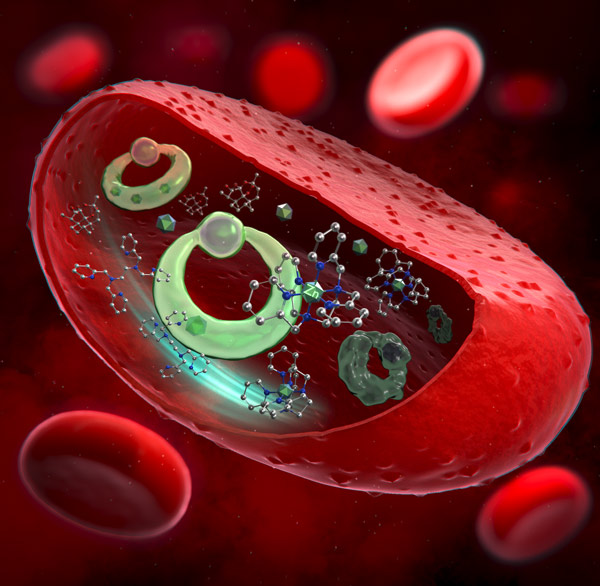Sep. 7, 2023 Research Highlight Biology
How a widely used antimalarial drug affects zinc levels in a malarial parasite
The discovery of how a widely used antimalarial affects zinc levels in parasites, could lead to new strategies to combat drug resistance
The crucial role of zinc depletion in the action of a key antimalarial drug against the deadliest malaria parasite has been uncovered by a team led by RIKEN researchers1. This finding provides valuable insights for developing new drugs against the disease.
Malaria poses a significant threat to nearly half of the world’s population, with about 247 million people contracting the disease and nearly 620,000 lives lost in 2021 alone. While worldwide efforts against the disease had been made over the last two decades, malaria is on the rebound, with a sharp uptick in the past few years.
The antimalarial artemisinin and its derivatives (ARTs) are commonly used for a first-line treatment, usually in combination with other drugs, against infections of Plasmodium falciparum—the deadliest parasite that causes malaria in people. However, the recent emergence of artemisinin-resistant strains in South East Asia and Southern Africa has raised serious concerns.
“In this context, there’s an urgent need to develop new antimalarial drugs with mechanisms of action that are different from those of existing drugs, and to advance artemisinin-based combination therapy,” says Akira Wada of the RIKEN Center for Biosystems Dynamics Research.
However, the underlying mechanism for how ARTs inhibit the growth of the malaria parasite had been unclear.

Figure 1: Illustration inside a red blood cell of Plasmodium falciparum (light green rings), the deadliest parasite that causes malaria in people. RIKEN researchers have discovered how an antimalaria drug affects zinc levels in the parasite. Reprinted, with permission, from Ref 1. Copyright 2023 American Chemical Society
Now, Wada and his co-workers have discovered that the artemisinin derivative dihydroartemisinin (DHA) induces pyknosis, a state of developmental arrest, in P. falciparum in red blood cells. This effect was accompanied by decreased concentration of glutathione—a key component in the parasite’s ability to tolerate oxidative stress.
“To gain a deeper understanding of the mechanism of action of DHA, we aimed to identify additional molecular factors that induce growth inhibition of P. falciparum through pyknosis,” says Wada.
By analyzing the gene expression of P. falciparum treated with antimalarials, the team discovered a reduction of zinc-associated proteins following exposure to DHA. Measuring zinc levels in DHA-treated parasites revealed zinc depletion.
Disrupting zinc homeostasis enhanced the antimalarial action of DHA following pyknosis. Furthermore, the disrupted zinc and glutathione homeostasis synergistically resulted in parasite growth inhibition.
The findings provide valuable insights into the molecular processes that underpin the effectiveness of ART-based therapies. “They shed light on the antimalarial action of DHA, providing important clues for completely elucidating the underlying mechanisms of action of ARTs,” says Wada.
This knowledge holds promise for developing novel strategies to combat drug-resistant malaria. “The development of specific compounds controlling zinc levels in P. falciparum can be expected to produce new companion drugs for enhancing the antimalarial activity of ARTs,” notes Wada.
Related content
Rate this article
Reference
- 1. Asahi, H., Niikura, M., Inoue, S.-I., Sendo, F., Kobayashi, F. & Wada, A. Dihydroartemisinin disrupts zinc homeostasis in Plasmodium falciparum to potentiate its antimalarial action via pyknosis. ACS Infectious Diseases 9, 1303–1309 (2023). doi: 10.1021/acsinfecdis.3c00031
